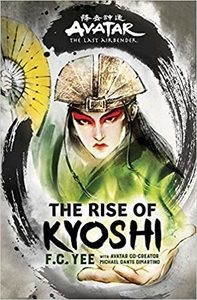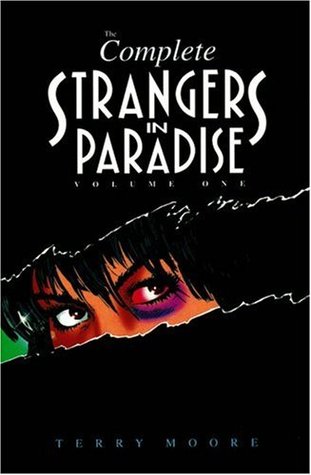“What you do when no one is guiding you determines who you are.”
It seems that Avatar: the Last Airbender is the show on everyone’s minds after its addition to the Netflix lineup; this renaissance of Avatar fan culture has sparked countless memes, TikTok dances, and the announcement of a new live action adaptation of the original series. Personally, I was a huge fan of the show as a kid, and was grateful for the reintroduction to Aang’s world. The Avatar universe has recently expanded beyond the realm of the original Nickelodeon TV show, spawning the sequel TV show The Legend of Korra, the comic series that picks up after the last season of The Last Airbender, and the regrettable live action movie adaptation directed by M. Night Shyamalan. The Rise of Kyoshi by F.C. Yee, with the creator of Avatar Michael Dante DiMartino’s input, is the newest addition to the franchise’s lore. The Rise of Kyoshi brings us back to the origins of the no-nonsense, 7-foot-tall, bi-icon, (wo)man with the fan, Avatar Kyoshi.
After the sudden death of Avatar Kuruk, the Four Nations are left without the unifying presence of the Avatar, leaving behind a wake of shadowy coups, criminal alliances, and a powerful clan made up of Kuruk’s closest friends, led by power-hungry Earthbender Jianzhu. Jianzhu becomes desperate after scouring the Earth Kingdom in search of the new Avatar, and forgoes the ancient rituals to confirm the identity of the Avatar, after coming across a powerful Earthbending child, Yun. In the present day, after being abandoned by her bandit parents, Kyoshi works as a servant for the new Avatar-in-training, Yun, who is also her closest friend. After being invited by Yun to accompany him to a rendezvous with the Southern Water Tribe, Kyoshi notices something is amiss about Yun, Jianzhu, and her own past. After a stark betrayal from those closest to her, Kyoshi is left on the lam with her Firebender friend (and secret crush) Rangi, as they run straight into the hands of a rising criminal underbelly at the heart of the Earth Kingdom. Kyoshi hones her bending skills and contemplates the meaning of revenge with her new gang-turned-found-family as she comes into her own as the new Avatar.
The Rise of Kyoshi is a perfect first step beyond limitations of the original children’s show, as it fleshes out world-building, raises the stakes with political intrigue and war, and its cast of morally grey characters that make the reader question the motives of each person involved. This young adult novel deals with heavier topics including equity versus equality, morality versus ethicality, and the meaning of a found family.
Although you don’t necessarily need to have seen the original TV show to understand the novel, it definitely does help to understand various cameos and references. There are some great easter eggs hidden throughout the plot, including a fun appearance from the cabbage merchant. Part of The Rise of Kyoshi’s worldbuilding is subverting expectations about each of the four nations; the Fire Nation becomes the voice of reason while the people of the Southern Water Tribe are ruthless and cunning, reminding us of the real danger of stereotyping, and that injustice can be found in even the most seemingly peaceful of places.
Something I loved about the book was its fast-paced fight scenes, reminiscent of Leigh Bardugo’s Six of Crows. It was great seeing Kyoshi’s ruthless bending tactics, and seeing another side to the Avatar’s role as peacekeeper between the bending nations. On the other hand, the political intrigue scenes from Jianzhu’s perspective dragged the book’s plot, especially towards the end of the book, leaving the final act to fall flat. However, Kyoshi’s character arc brings the novel’s pace back up to speed and avoids the novel being bogged down.
The Rise of Kyoshi is the first in a new series by F.C. Yee, and the author has already promised further development of Kyoshi and Rangi’s budding romance. In this novel, Rangi is the person who keeps Kyoshi human, keeping her from sliding off the deep end, while Kyoshi’s rebelliousness inspires Rangi to shed off her mother’s strict tutelage. Rangi and Kyoshi’s relationship, bound by the words “where you go, I go,” is one of the highlights of the book, and I felt that their story was so sweet and full of fluff.
If you fell in love with the world of Avatar through The Last Airbender, and want to see yourself represented beyond Korra and Asami’s brief handhold, then pick up The Rise of Kyoshi. Kyoshi is unapologetic about who and what she is, accepting her new position as the Avatar with grace, refusing to hide her bisexuality or her poor upbringing. To quote Kyoshi herself, “if this was what being true to herself felt like, she could never go back.” For Avatar fans old and new, F.C. Yee’s The Rise of Kyoshi provides a celebration of identity at the heart of a fantastically familiar world.
Trigger Warnings: Character Death, Gaslighting, Violence, Gore



